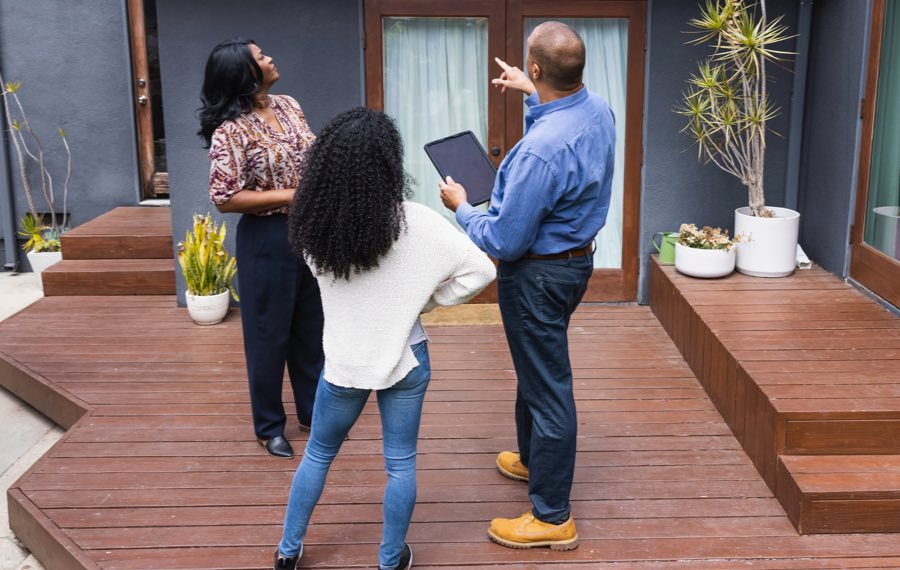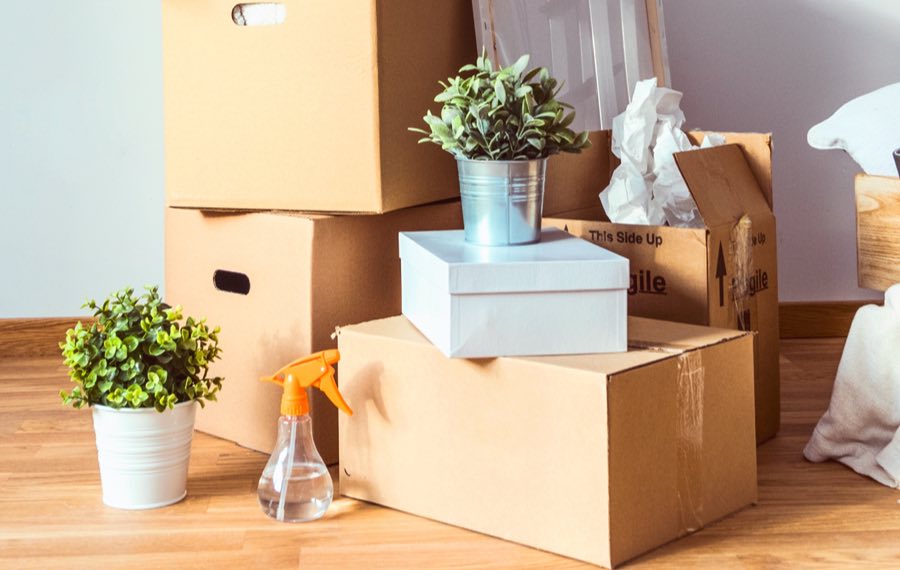How to Prepare Your Property For Sale Minus the Stress

Francis Taylor
Last Updated: 6th December 2022
Getting your home ready for sale can definitely be an exciting time. Although you’ve made some great memories inside your old house, now you’re eager to move on to bigger and better things. You’re motivated. You’re brimming with energy. And then reality sinks in – preparing everything is a lot of work.
Well, the good news is that iSelect is here to help take the stress off. We’ve compiled some tips below to help the whole house preparation process go a little more smoothly.
What do I need to know?
- Formulate a realistic expectation of what your home is likely to sell for by comparing recent sales prices for similar properties. Your real estate agent should also be able to share recent comparable sales with you
- Give your house a pre-sale spruce up to make sure it is looking its best. Touch up any minor defects, give it a really thorough clean and freshen up the garden to increase its appeal to buyers
- Carefully consider any pre-sale renovations, as you don’t want to spend money on things that ultimately won’t add value to prospective buyers
- Selling a home involves a lot of legal paperwork. It can be worthwhile engaging a solicitor or conveyancer to take care of the conveyancing process for you
Get everyone on the same page
If you’ve decided to go with a real estate agent, then it’s a good idea to make sure they know what how much you’re hoping to sell your home for. As noted by Consumer Affairs Victoria, you’ll want to reach an agreement about how much your house should be advertised for and the offers you’re willing to consider1.
Research can also be your friend here. You can look at similar properties in your area and investigate how much they’ve sold for online. You can also ask your real estate agent for sales records of other similar homes in your area for comparison.
Give your house a personal inspection
Putting your house up for sale means that lots of prospective buyers will want to see it first-hand before making a commitment. Not only is it important that everything looks spick and span, but having everything in working order may also help the sale.
Legally, you can’t mislead buyers about your house’s true condition. So it may be worthwhile to give your house a quick review for any defects. Are there any holes in the walls they need patching up, stubborn stains on the carpet or prominent dents in the fixtures?
It’s ultimately up to you which defects you choose to fix and which might be less important. Just keep things in mind from a buyer’s point-of-view. Ask yourself whether you’d buy the house – warts and all – or if it’d need a little fixing up before you fully commit.
Most buyers will organise a professional building inspection before signing any contracts. So, any faults that you might try to conceal will likely be identified by the inspector.
To renovate or not to renovate
Some people choose to spend big on renovations before putting their house on their market. The logic goes that any costs are offset by an improvement in the sales price, though this isn’t guaranteed.
In an interview with the Royal Automobile Club of Victoria (RACV), Lachlan Bishop – a sales executive at the real estate agency Compton Green – suggested you don’t want to spend too much on big improvements that buyers don’t want2.
Among other things, Bishop states that new cabinets and storage room may be especially appealing to buyers, as well as a fancy new garden2.
Still, what attracts one buyer will not necessarily attract another. Some prefer blackbutt flooring while others want shag carpeting. The only certainty is that you should give the decision to renovate careful consideration. There’s no shame if you decide it’s not for you.
Beautify the outside
A jungle of weeds in your front yard looks grotty on a normal day, but when you’re selling your house it might as well be buyer repellent. Whether you’re advertising your property or holding an open house, you want to make a good first impression, so a nice-looking exterior is key.
Look at the photos on any property listing and you’ll quickly notice a pattern: the lawns are mowed, the trees and shrubbery well-manicured and very little is obscuring your view of the house. You might also want to place some alluring plants in the garden or apply a fresh coat of paint to the walls – though this all depends on what you think looks best and what makes sense for your property.

Tidy up the inside
Cobwebs and dirty piles of clothes are an obvious no-no if you’re having buyers over to inspect the house, so it might help to do a thorough clean beforehand. Opening the windows and airing out the house can also ensure everything smells fresh by the time anyone arrives is also good practice, as is clearing out any clutter.
You’ll also need to decide on the ‘vibe’ you want to set for the house. For instance, some throw pillows and flower vases might give it a cosy, lived-in look while clear counters and blank walls, free of posters and other decorations, may strike buyers as spacious and uncluttered.
And don’t forget your valuables either! Consumer Affairs Victoria also advises keeping precious or personal items out of view when holding an open house3. If you have jewellery or other expensive belongings it might be wise to lock them up somewhere secure – just to be on the safe side.
Make yourself scarce
Generally speaking, you don’t want to be skulking around if you decide to hold an open inspection. Your agent will likely tell you to have some time to yourself while they show prospective buyers around, but you can also speak to them if you have any concerns.
Remember that buyers are also looking for a home that can be theirs, so leaving photos of your family scattered around might break the fantasy for them. As mentioned before, picture yourself in the buyer’s shoes, and think about whether you’d want to buy a house that still looks like it belongs to the owner.
Take care with conveyancing
When selling your home, you’ll inevitably have to go through a conveyancing process. This involves transferring the property from your name to the person buying it, and involves a fair amount of legal paperwork.
Again, it’s your decision whether you want a solicitor or conveyancer to take care of this for you, or whether you want to try your hand at it yourself. However, it’s worth listening to the advice of government agencies here. For instance, the New South Wales Fair Trading Commission4 notes:
If you choose to do your own conveyancing, research what is required and the risks involved… You will still be personally liable if there is a problem with the sale even if you followed the instructions. It may also be difficult for you to purchase the same level of insurance available to a licensed conveyancer or solicitor.
The Tasmanian Government’s Consumer, Building and Occupational Services5 website also calls the decision to do your own conveyancing “risky” and Consumer Affairs Victoria6 recommends using a conveyancer or solicitor if you’re not confident in your own ability.
However, if you do decide to conduct the conveyancing yourself, you may want to check in with the government authority in your state or territory . just to be sure of any legal requirements.
Looking to buy a new home?
Hopefully, you’ll end up getting an offer on your old house that lets you move into your dream home. However, if you think that you’ll need some extra funds to make the move, we might be able to help.
At iSelect we’ve partnered with Lendi to make it easier to find a great deal on home loans*. So if you’re looking for a home loan, click here to start comparing from a range of lenders online, or give Lendi a call on 1300 186 260.
1 Source: Selling property – checklist – Consumer Affairs Victoria
2 Source: Home improvements that are worth the money | RACV
3 Source: Preparing to sell your property – Consumer Affairs Victoria
5 Source: https://cbos.tas.gov.au/topics/housing/buying-selling-property/advice-buying-selling-property
6 Source: Conveyancing and contracts for sellers – Consumer Affairs Victoria
Francis Taylor
Content Writer

Articles that might interest you
Real Estate
VIEW ALL
How to Prepare Your Property For Sale Minus the Stress
BY Francis Taylor | 15th September 2022
Getting your home ready for sale can definitely be an exciting time. Although you’ve made some great memories inside ...

How to Choose a Real Estate Agent
BY Francis Taylor | 15th September 2022
After making that big decision to put their house or inve...

The Simple Moving House Checklist 2022
BY Francis Taylor | 14th September 2022
There are obviously some differences between moving into ...

Tips For Moving House Without All The Stress
BY Francis Taylor | 14th September 2022
It’s considered to be among all the capital-M ‘Major Life...